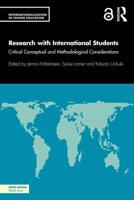Publisher's Synopsis
Prior to World War II, the Army had a deeply ingrained facility with and acceptance of what we now term unconventional warfare-raising, training, advising, and cooperating with tribal militias, local paramilitaries, and other nonstate armed groups. This culture of irregular warfare was attributable to nearly 300 years of American military tradition from the colonial period until 1941, including extensive experience in cooperating with Native American tribes and individual scouts during the expansion of the western frontier. These traditions of unconventional war reached maturity in the years of fighting on the western plains after the Civil War, and were given ultimate expression in the creation of the Philippine Scouts at the beginning of the 20th century. Since World War II, the wider military has lost this expertise in and comfortable familiarity with unconventional operations, with the Special Operations community taking on the sole proprietorship of this role.










